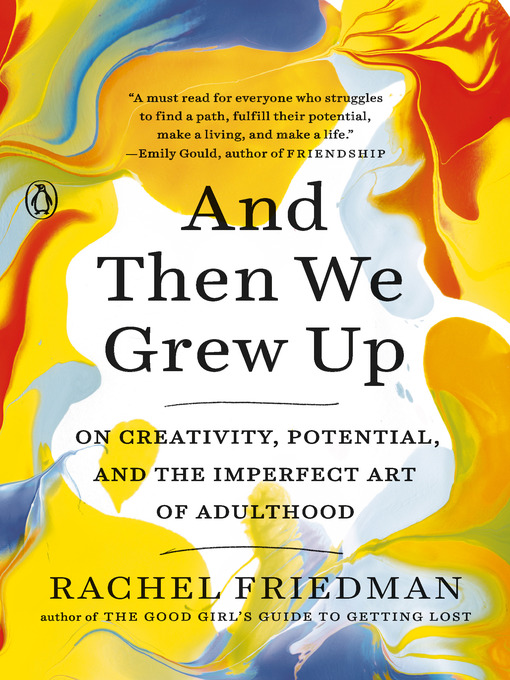
A journey through the many ways to live an artistic life—from the flashy and famous to the quiet and steady—full of unexpected insights about creativity and contentment, from the author of The Good Girl’s Guide to Getting Lost.
Rachel Friedman was a serious violist as a kid. She quit music in college but never stopped fantasizing about what her life might be like if she had never put down her bow. Years later, a freelance writer in New York, she again finds herself struggling with her fantasy of an artist’s life versus its much more complicated reality. In search of answers, she decides to track down her childhood friends from Interlochen, a prestigious arts camp she attended, full of aspiring actors, artists, dancers, and musicians, to find out how their early creative ambitions have translated into adult careers, relationships, and identities.
Rachel’s conversations with these men and women spark nuanced revelations about creativity and being an artist: that it doesn’t have to be all or nothing, that success isn’t always linear, that sometimes it’s okay to quit. And Then We Grew Up is for anyone who has given up a childhood dream and wondered “what-if?”, for those who have aspired to do what they love and had doubts along the way, and for all whose careers fall somewhere between emerging and established. Warm, whip-smart, and insightful, it offers inspiration for finding creative fulfillment wherever we end up in life.
-
Creators
-
Publisher
-
Release date
December 31, 2019 -
Formats
-
Kindle Book
-
OverDrive Read
- ISBN: 9780525503859
-
EPUB ebook
- ISBN: 9780525503859
- File size: 871 KB
-
-
Accessibility
-
Languages
- English
-
Reviews

Loading
Formats
- Kindle Book
- OverDrive Read
- EPUB ebook
Languages
- English
Why is availability limited?
×Availability can change throughout the month based on the library's budget. You can still place a hold on the title, and your hold will be automatically filled as soon as the title is available again.
The Kindle Book format for this title is not supported on:
×Read-along ebook
×The OverDrive Read format of this ebook has professional narration that plays while you read in your browser. Learn more here.